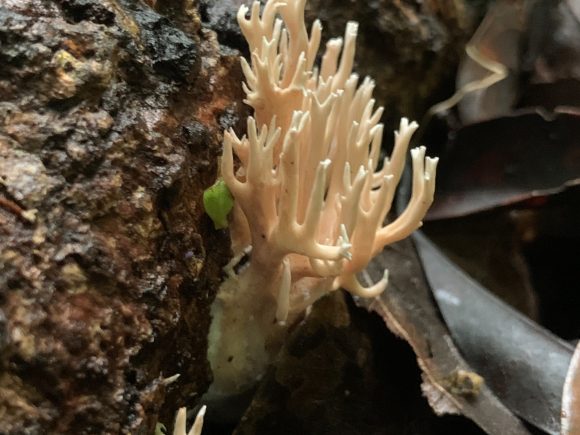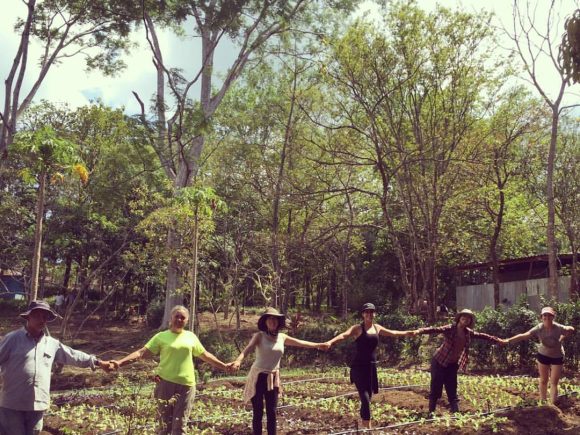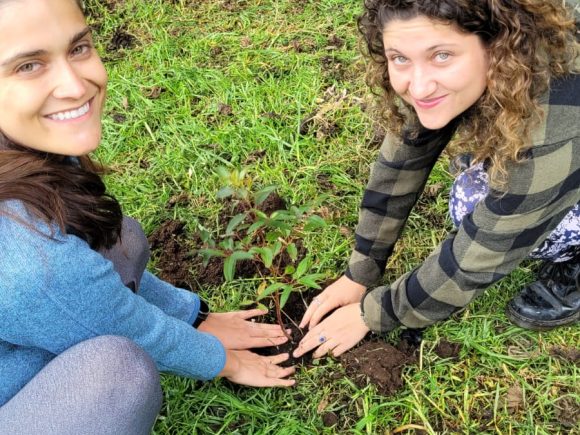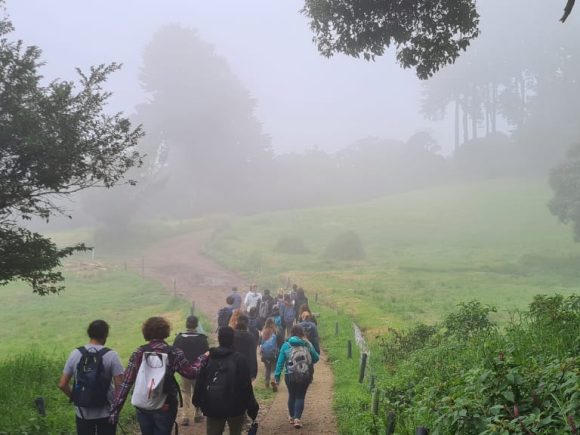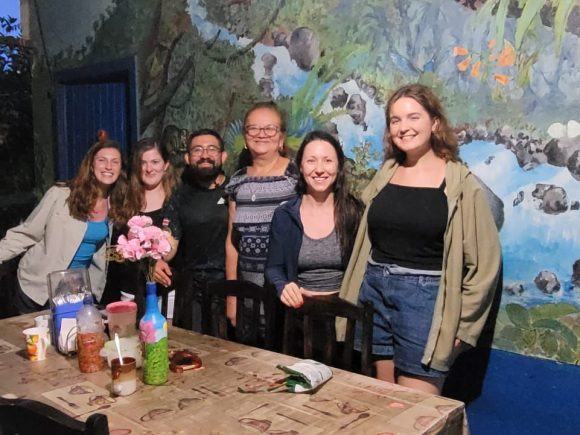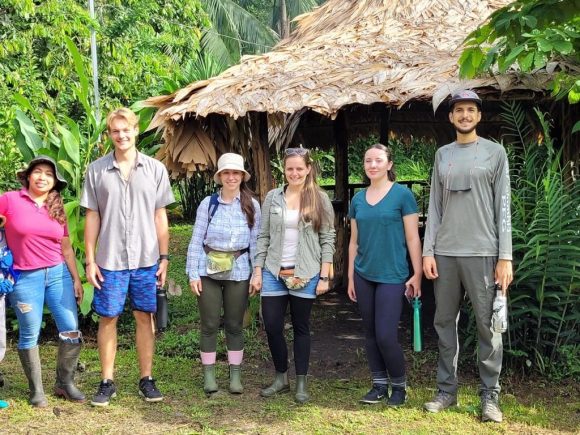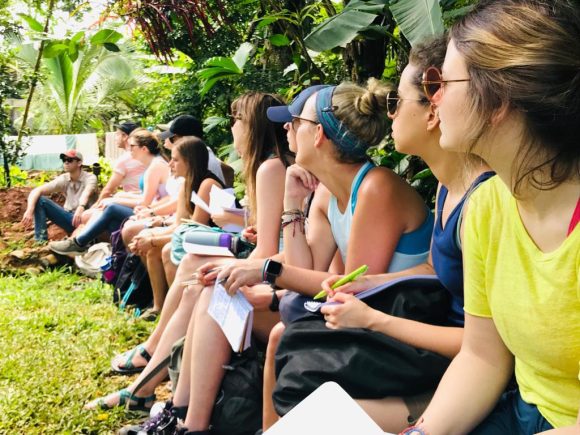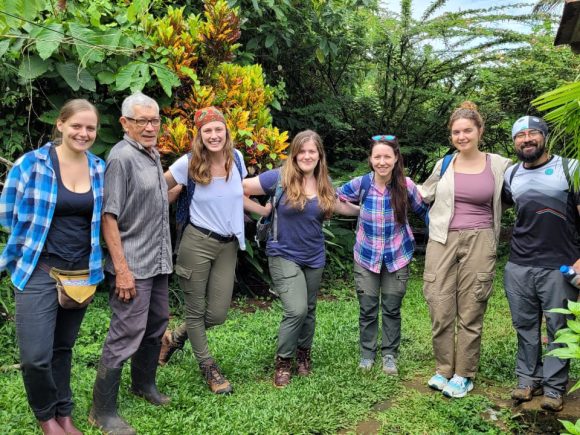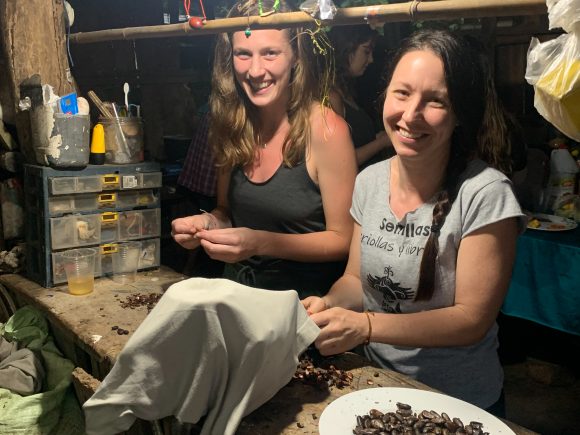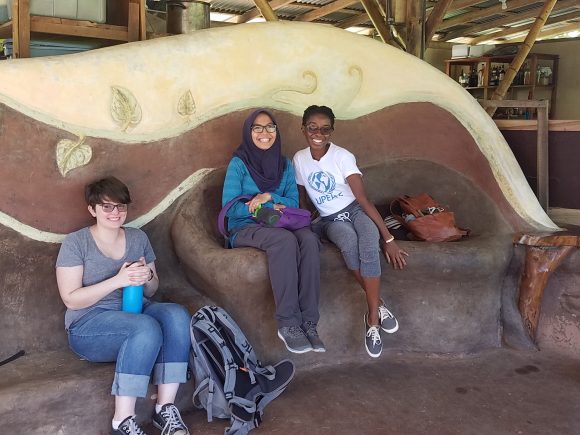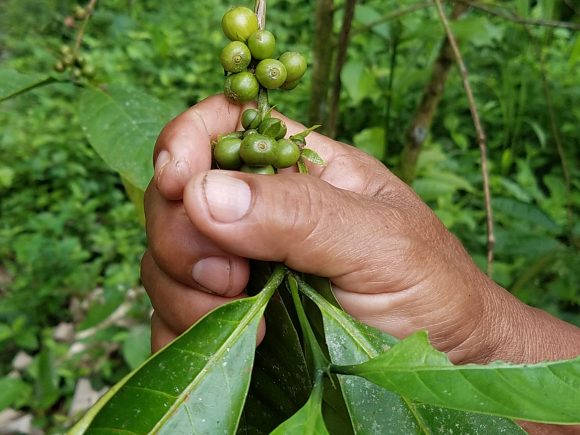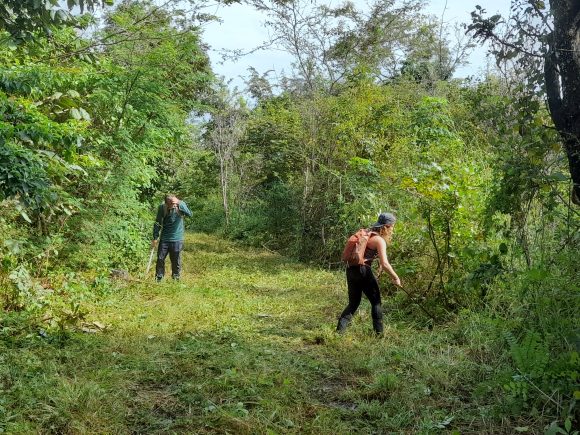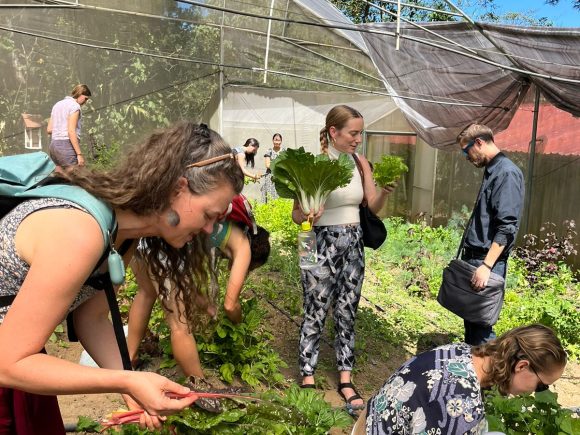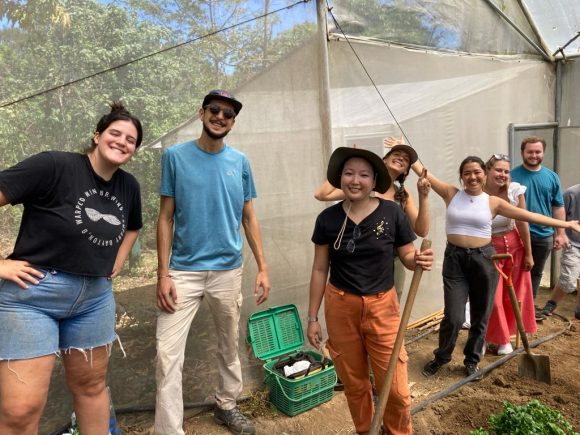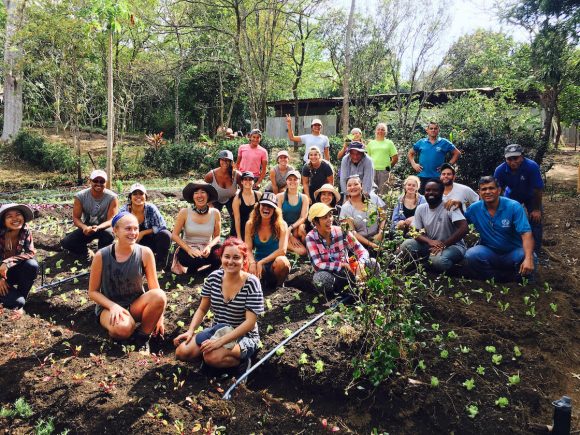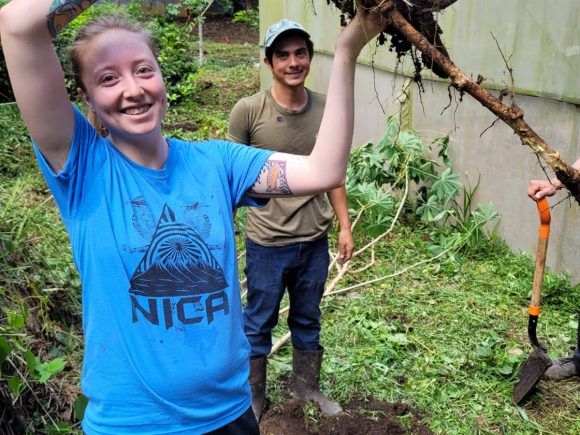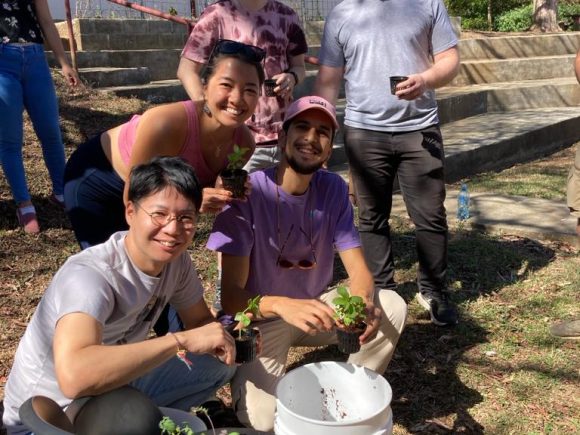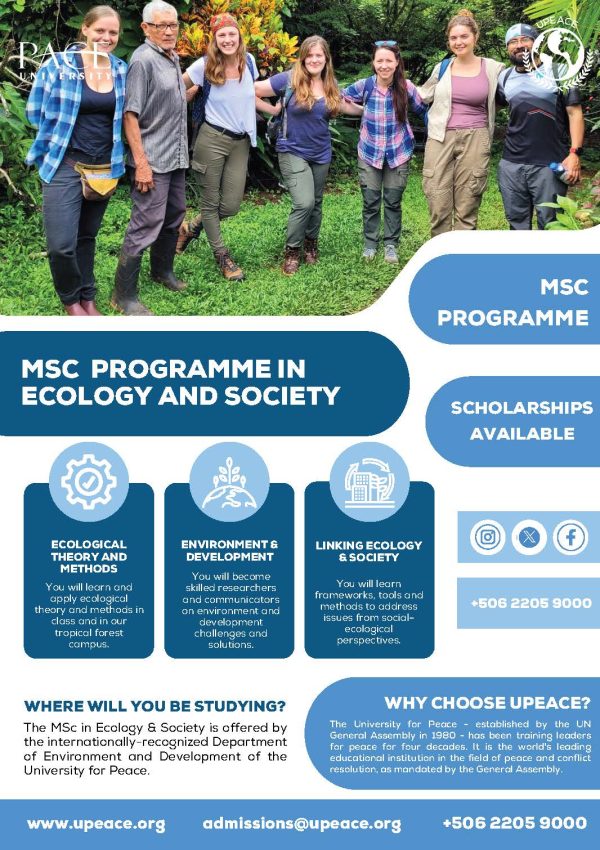M.Sc. in Ecology and Society
Modality
Face-to-face / Hybrid
Application Deadline
30 April 2026
M.Sc. in Ecology and Society
The Master of Science Degree in Ecology and Society (ES) has been designed in response to the currently recognized global need for Master’s-level trained Ecologists to address local to international level environmental issues. Students will gain the knowledge and skills to characterize, understand, restore, manage and maintain the planet’s ecosystems, and determine the correlations between healthy, sustained habitats and the ecosystem services they provide to benefit society and the rest of the biosphere, all while being able to explain/describe these concepts from the scientific, quantitative, societal, political, temporal and spatial perspectives, all of which are required of the next generation of fully engaged Ecologists.
About the Programme
Required Documentation
The programme requires applicants to hold an undergraduate degree in a natural science discipline, such as ecology, biology, environmental sciences, or a closely related field.
The following documentation is required to complete your application process. Please have them ready and on hand before beginning your online application process, as they will need to be uploaded into the system.
- English Proficiency Test Scores Report: TOEFL (PBT, CBT or IBT), IELTS, Duolingo English Test, Pearson Test of English or Cambridge English Language Assessment
- Statement of Purpose
- Letters of Recommendation
- Official Undergraduate (Bachelor’s Degree) Transcripts and Degree Certificate
- Curriculum Vitae or Resume
- Copy of Passport (front page with photo only)
- One passport-size photos for ID purposes
The online application requires electronic (PDF) scans of required documents. Should admission be granted, the following documents will be eventually be required in official hard copy:
- English Proficiency Test Scores Report: TOEFL (PBT, CBT or IBT), IELTS, Duolingo English Test, Pearson Test of English or Cambridge English Language Assessment (if applicable)
- Official Undergraduate Transcripts and Degree Certificate (and English translations if applicable)
- Three (3) passport-size photos.
UPEACE Costs
UPEACE is a not-for-profit institution and has limited funds for financial assistance. Therefore we strive for balance, diverse class composition, and merit in distributing financial assistance among admitted students.
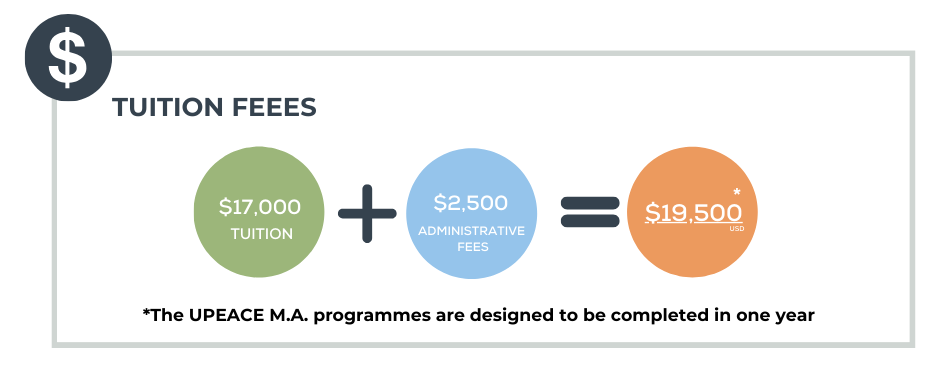
Conditions of UPEACE Scholarships & Financial Assistance
The prospective applicant has to be admitted to UPEACE in order to receive any possibility of financial assistance from the University, the latter of which is subject to the following conditions:
- The financial assistance awarded is non-negotiable.
- The scholarships/waivers do not apply to the US$ 2,500 administrative fee. This fee is mandatory for all students and is non-refundable if the student wishes to withdraw from UPEACE before completing his/her degree. Admitted students must comply with this financial obligation to UPEACE according to the required deadline outlined in their official admissions documents.
- Applicants are only eligible for one waiver category per application period. Waiver categories cannot be combined.
- If you receive a scholarship from another institution, you are obligated to inform the UPEACE Admissions Office, so that it can revert the waivers granted by UPEACE.
- Applicants eligible for a 50% waiver must apply directly through the UPEACE Admissions Office.
Automatic Scholarships/Waivers
30% Tuition Waiver (Automatic)

Available to M.A. and Doctorate students that meet one of the following criteria:
- Citizens of a State party to the International Agreement Establishing UPEACE
- Citizens of a State co-sponsoring the 2022 Resolution of the UN General Assembly on UPEACE
- Students who have received an undergraduate or graduate degree from a partner university (inquire with our Admissions Team)
- Peace Corps veterans
50% Tuition Waiver (Automatic)

Available to M.A. and Doctorate students that meet one of the following criteria:
- Professors from a partner university
- Costa Rican citizens and residents (host country)
- Current, full-time UN employees and volunteers
- Documented refugee or asylee
30% or 50% Tuition Waiver (Merit Based) – Available to Master’s applicants who do not belong to the above categories. These waivers are offered in limited number and will be awarded by merit, not financial condition. These waivers are not available to doctorate students.
Career Prospects
What is an ecologist, exactly?
Ecologists contribute significantly to the understanding and preservation of the natural world and all its habitats and ecosystems, and the processes and critical conditions driving the structure of the natural world.
They generate new knowledge concerning how the living and non-living (i.e., nutrients, water, etc.) components of all ecosystems interact together to create the conditions within all different global habitats, using this knowledge to solve environmental problems through ecological scientific investigations.
They study the differences in all these components between different heathy, diseased or damaged habitats, ecosystems, and landscapes, while sharing this information with appropriate users to help them design better, more sustainable strategies for maintaining or restoring all ecosystems.
They often serve as educators of students from high school to colleges and universities, and in museums and nature centers.
Many Ecologists work in governmental natural resource agencies and scientific laboratories, non-profit organizations, governmental planning offices, where they study natural and modified environments, such as in forestry, agriculture, land development, and areas damaged by natural disasters. As scientists,
Individuals trained at this level can pursue careers in the public and private sector at local, regional, national, and international levels as ecological scientists, foresters, conservation scientists, natural resource and wildlife managers, recreation managers, environmental assessment scientists, sustainability scientists, and public school and college science educators.
DED Field Visits
Our programmes have highly practical components – several of our courses include field visits where we take students to visit different communities and projects throughout the country to offer hands-on learning experiences with our diverse and interdisciplinary community of collaborators in the field.
Our courses equip students with theoretical knowledge and tools to advocate for sustainable practices in diverse contexts. A concrete example is the greenhouse and garden in which our students can explore and experiment with sustainable agricultural practices to better understand the interrelationships between soil health, water protection, ecosystem dynamics, food security and circular economy, among others. We understand our greenhouse as a living laboratory in which our students play an important role throughout the academic year by planting, weeding, harvesting, watering, fertilizing and caring for their crops.
Please note that field trips can change from year to year.
Follow us on our Instagram to stay up to date about our activities and events! @upeace.ded
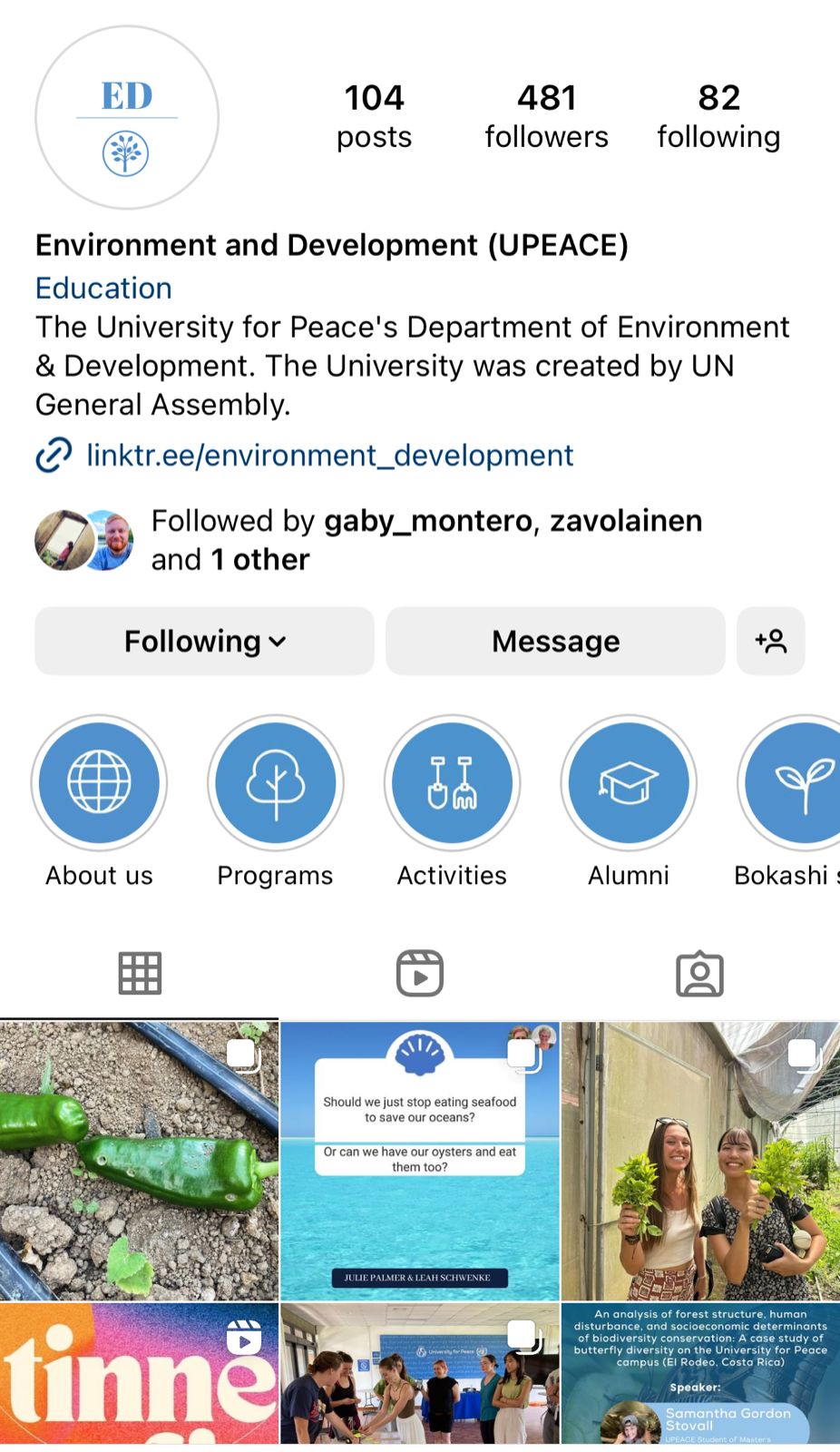
Frequently Asked Questions
What is the start date for this programme?
The start date of this programme is 19 August 2025.
How much does this programme cost?
The cost of the programme is $19,500.00 USD.
Can I pay for this programme in instalments?
Yes, this programme is payable in 2-3 instalments.
Is this programme available online?
No. This is a synchronous face-to-face program, with eventually some courses being taught online.
What is the duration of this programme?
The duration of this programme is 2 semesters of course work with an extended time of 6 months to complete the final graduation project (a capstone, internship, or thesis). It is approximately a total of 16 months.
Is this programme offered part-time or full-time?
This is a full-time programme.
Where is the campus located and what are the nearby towns like?
The campus is located in El Rodeo de Mora, Colón, San José, Costa Rica. This is a rural area, up a small mountain that is 7 kilometres from the town of Ciudad Colón. Ciudad Colon is a small town with all services (banks, coffee shops, two large supermarkets, farmer’s markets, a park, multiple gyms, a swimming pool, and other stores). This town is around 15 kilometres from a large shopping mall and 20 kilometres from the capital city San José.
Is the campus accessible by public transportation?
UPEACE provides students with several free of charge shuttles throughout the day from Ciudad Colón to campus and back.
Is the accommodation included in the tuition fee?
Accommodation is not included in the tuition fee and needs to be covered by the student.
What does the housing situation close to the campus look like?
Once you are accepted in the programme, you will receive access to our housing platform where you can find different accommodation that best fits your needs and budget, either in El Rodeo (closest to UPEACE) or in the town of Ciudad Colón. Suggested housing accommodations include room in a host family, studio, apartment, or house which could be shared with other students. For further questions regarding housing, please contact our colleague and housing officer Alvaro Castro: acastro@upeace.org
How can I issue my visa for Costa Rica?
This is case specific, but in general, once you are accepted in the programme, UPEACE’s visa officer will guide you through the process of getting your visa. For further questions regarding visa, please contact our colleague and visas officer Cynthia Díaz: cdiaz@upeace.org
What is the admission process for this programme?
Once you submit your application, we will review your package and make sure all documents are as requested. Then we’ll forward your file to the programme evaluators to review and decide if you’re qualified for admission.
In what language is this programme taught?
The programme is fully taught in English.
What department does the ES programme belong to?
This programme belongs to the Department of Environment and Development.
Where do students work after graduating?
Our alumni work in a variety of fields and organizations. Some work for the private sector, some government organizations, some for the United Nations, some for non-governmental organizations (NGOs), while others follow a career in academia.
Does UPEACE help students find internships?
Our department faculty and staff assist you in identifying options for potential internships. We have an extensive database of organizations where our students have done their internships over the years available for our students.
Are there field visits in this programme?
Yes, most of our courses have field trips. Some are day trips; some can be overnight.
On these field trips student get the opportunity to visit different communities and projects throughout the country and gain hands-on learning experiences with our diverse and interdisciplinary community of collaborators in the field.
Where are the professors in the programme from?
Our resident and visiting faculty members come from a variety of countries and backgrounds. We have professors from Canada, Costa Rica, Germany, United States.
